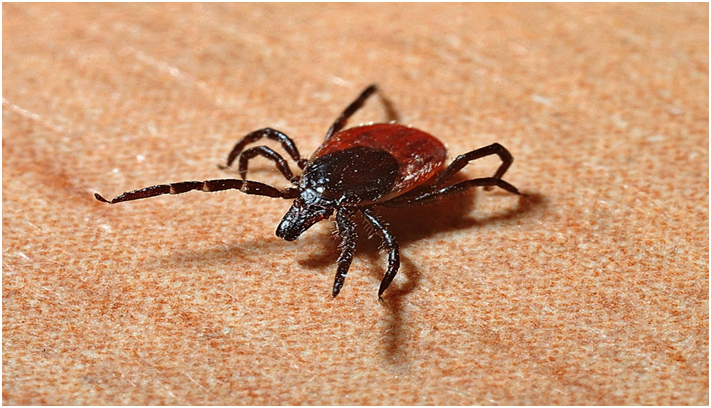Lyme disease is an infection caused by the bacterium Borrelia Sp which can be transmitted by flea bites. Lyme disease can infect and disrupt your organ system if not treated immediately. Symptoms of Lyme disease appear gradually according to the condition of the disease experienced by a person. The following stages of symptoms need attention:
- Stage 1
One symptom that arises is rash. Rashes are a sign of bacteria that multiply in the blood. The rash that appears is usually known as erythema migraine. Rash usually appears 1-2 weeks after a person is bitten by lice.
- Stage 2
Usually at stage 2, people with Lyme disease experience symptoms such as flu. The symptoms are fever, chills, headaches, muscle aches, enlarged lymph nodes, fatigue, and sore throat. Stage 2 Lyme disease can cause health complications such as meningitis, neurological disorders, and heart disease.
- Stage 3
Stage 3 Lyme disease conditions can occur when treatment is not done or adequate on previous stages of Lyme disease. Symptoms that appear more severe such as arthritis, numbness in the legs and arms, mental disorders, severe headaches, and heart rhythm disorders.
Diagnosis of Lyme Disease
Lyme disease is generally difficult to diagnose because the symptoms tend to be similar to other diseases. The easiest way to find out if a patient is suffering from this disease is through a rash examination on the skin. The doctor will ask for a history of flea bites, although many sufferers cannot remember or know this.
Physical examination and examination of the rash can be done for several days to confirm the presence of erythema migrans as a symptom that is typical for Lyme Disease. The erythema migrans rash may widen within a few days if antibiotics have not been given.
If the patient cannot remember being bitten by lice and there are no erythema migrans, the doctor will advise the patient to undergo a blood test to confirm the diagnosis. However, it should be remembered that blood tests carried out in patients with early-stage Lyme Disease are often not helpful because specific antibodies have not yet been formed against the bacteria Borrelia sp.
Specific antibodies to the bacterium Borrelia sp can be detected in the blood of patients through the enzyme-linked immunosorbent assay method ( ELISA). If the results of the Borrelia antibody test using the ELISA method are positive, the patient can be recommended to undergo a Western Blot test to confirm the results.
Treatment of Lyme Disease
The main treatment step for Lyme disease is with antibiotics. The duration of antibiotic will generally take around two weeks to one month. The difference in duration of antibiotic treatment in each patient depends on the severity of the infection experienced.
Patients with early-stage Lyme disease are usually given antibiotics in tablet form. Whereas for patients with advanced Lyme disease, antibiotics can be given in the form of injections. Giving antibiotics in the form of injections is also given if Lyme disease symptoms suffered involve central nervous system disorders. Treatment of early-stage Lyme disease lasts about 14-21 days, while advanced stages last around 14-28 days.
The danger of this disease, if not treated immediately causes complications of other diseases that can interfere with your health such as heart rhythm disorders or arrhythmias, nervous system disorders that cause paralysis in certain parts of the body, cognitive disorders that interfere with one’s memory or memory and joint inflammation in the body.
Not only complications, after undergoing treatment, people with Lyme disease still have the potential to experience the effects of treatment such as vertigo, muscle aches, difficulty sleeping, mood disorders and hearing loss.
But don’t worry, consider these prevention steps to avoid Lyme disease, including:
- Avoiding Activities in the Grassy Area
Fleas carrying Lyme-causing bacteria live in grass. Frequent activity in the grassy area puts a person at risk of getting bites from lice that cause Lyme disease. Always use footwear.
- Avoid Open Clothes When Outside Activities
Lice that cause Lyme disease can easily land on the body. Especially if you wear clothes that are too revealing. This can cause you to get flea bites on body parts. We recommend using closed clothing or using long-sleeved clothes and long pants to avoid lice bites.
- Use Anti-Insect Cream
You can use anti-insect creams to prevent tick bites that cause Lyme disease
For more information regarding this disease, click on this link – Child Specialists near me






